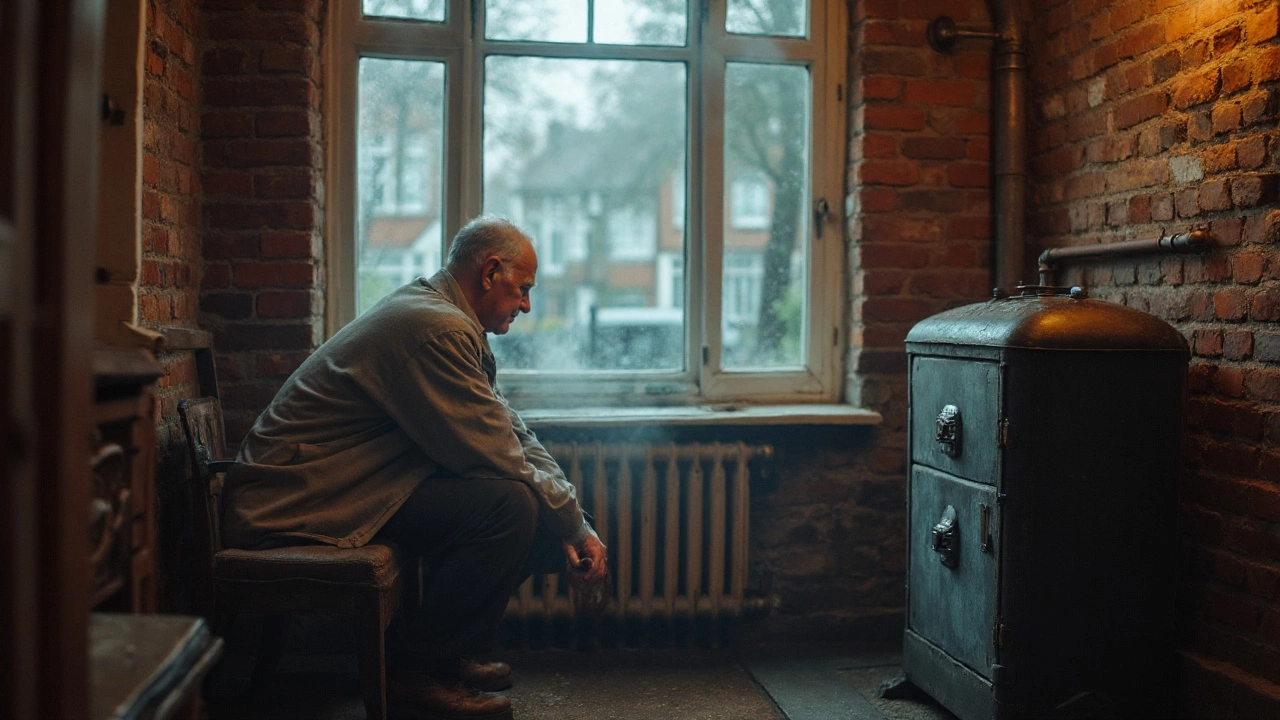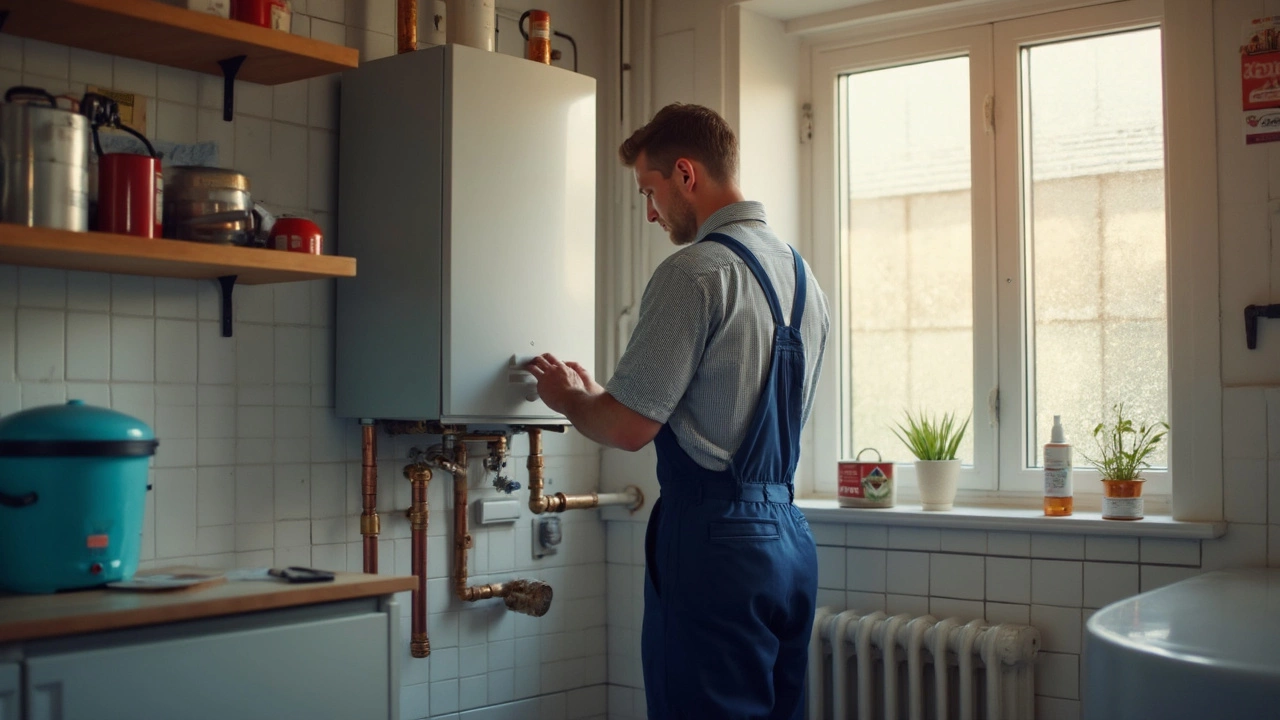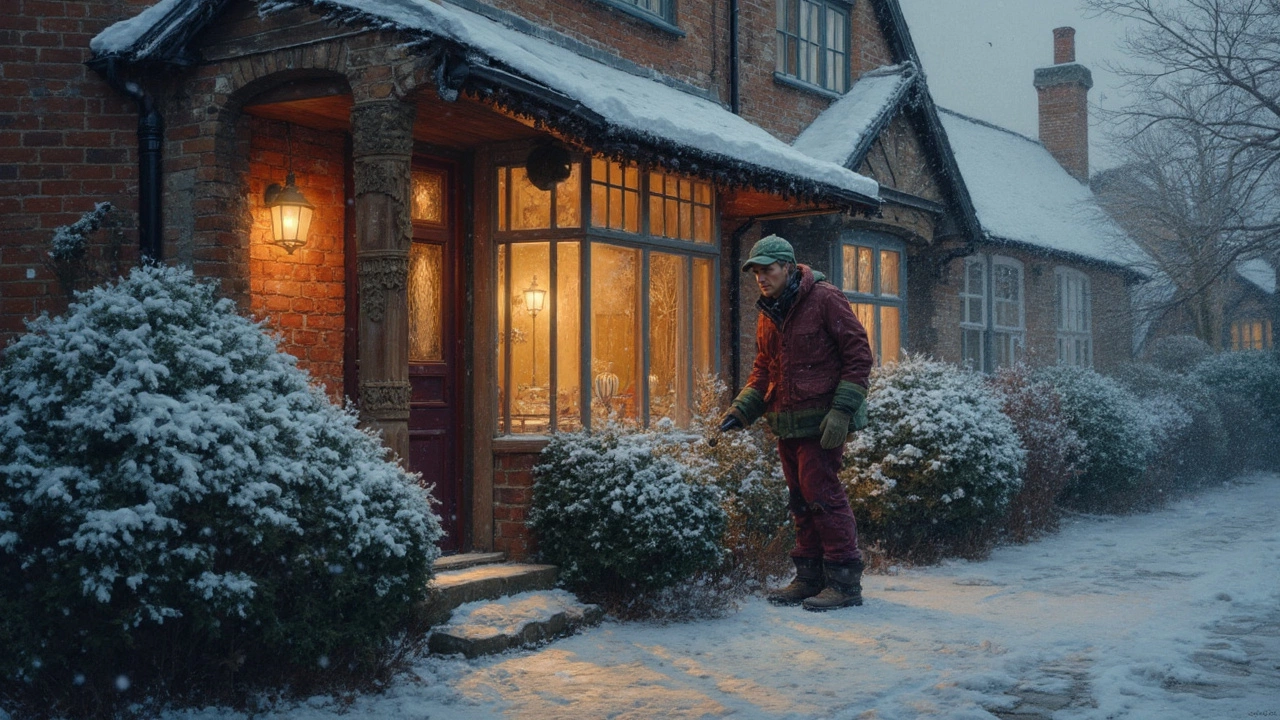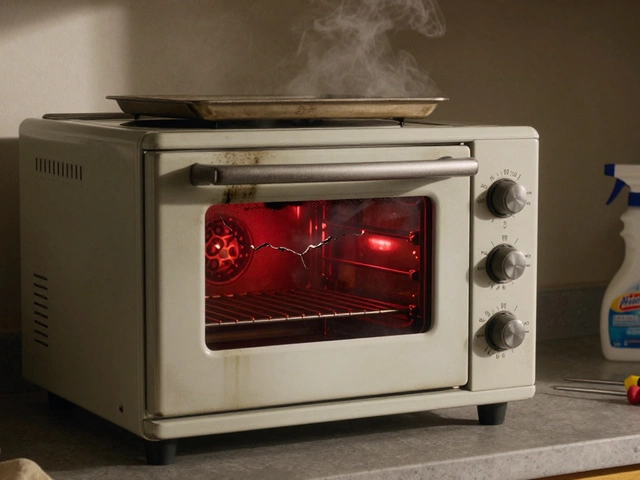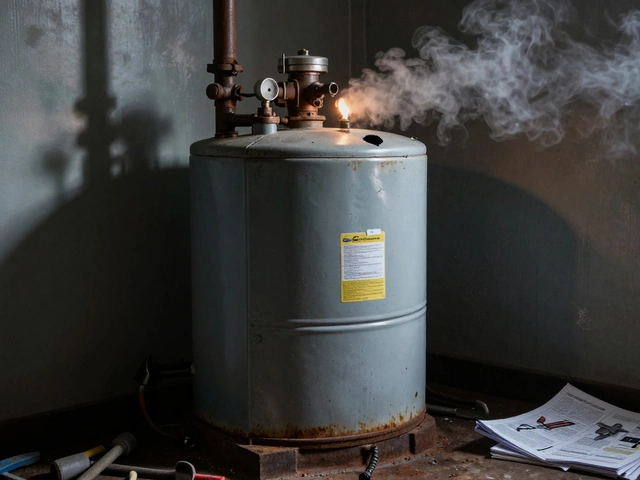The day your boiler quits isn’t just inconvenient—it’s usually cold, expensive, and stressful. No one wants that surprise. But what if you could spot the warning signs before your boiler gives up for good? Surprisingly, a lot of people have no idea how long a boiler should realistically last in their home. Some expect just a decade, while others keep chugging along for almost thirty years without ever thinking about it—until disaster strikes. Knowing the life expectancy of your boiler is more than a curiosity—it helps with budgeting, planning upgrades, and avoiding mid-winter breakdowns. We’re talking hard numbers, common mistakes that wreck boilers early, and easy ways to squeeze out a few extra years. Ready to find out if your boiler is living on borrowed time?
What Impacts Boiler Lifespan? It’s More Than Just Age
If you ask ten homeowners how long their boilers lasted, you’ll get wildly different answers. But let’s get real: a typical modern boiler has a lifespan between 10 and 15 years, according to a comprehensive industry survey from the UK’s Heating and Hotwater Industry Council (HHIC). Old cast iron models sometimes stick around for 20 to even 30 years, but don’t count on that with most current models—the drive for energy efficiency means lighter, smarter but often less long-lived machines.
What is actually shortening or stretching a boiler’s life? Here’s where things get interesting. To start, the type matters a lot. Combi boilers (those that heat water and rooms without a separate tank) usually fall short of 15 years, while traditional or system boilers sometimes edge close to 20—thanks to less on-off cycling and simpler demands on their parts.
Here’s a look at a few of the top factors that make boilers age faster—or slower:
- Hard Water: If you live in an area with lots of minerals in the water, your boiler has to work harder. Limescale builds up inside, acting like a blanket around the heat exchanger and making your boiler strain and use more gas to heat the same amount of water. Over years, it’s a killer for efficiency and lifespan. Even a millimeter of scale can drop the efficiency by as much as 10%.
- Maintenance Neglect: Annual service isn’t just a suggestion, it’s like giving your boiler a physical every year. Catching a small leak or blocked valve early means no big breakdown later. Boilers that go unserviced often fail years before their time.
- Install Quality: Even a top-of-the-line boiler won’t make it to double digits if it’s fitted badly. Bad pipework, poor drainage, or improper venting can cause uneven stresses or dangerous faults that age a boiler in dog years.
- Usage Patterns: If you’re cranking up the thermostat every morning and then shutting it off by noon, your boiler is getting a workout. Constant on-off cycling is tough on key parts—especially the burner and heat exchanger. A setting that keeps things steady is much kinder.
- Design and Model: Newer units are packed with electronics. They are efficient but sometimes less robust than old tanks with few moving parts. Still, modern ones trade long life for much cheaper running costs.
Ever wondered how different boiler types compare for lifespan? Here’s a simple breakdown:
| Boiler Type | Average Lifespan (Years) | Modern Efficiency |
|---|---|---|
| Combi Boiler | 10–15 | High |
| System Boiler | 12–20 | High |
| Conventional Boiler | 15–25 | Medium |
| Old Cast Iron | 20–30 | Low |
Basically, the sweet spot for swapping out your boiler is when efficiency dips and repair bills pile up—but before it utterly breaks down. A lot of people stick by their boilers well past their prime, missing out on savings, comfort, and safety. More on how to spot those warning signs soon.
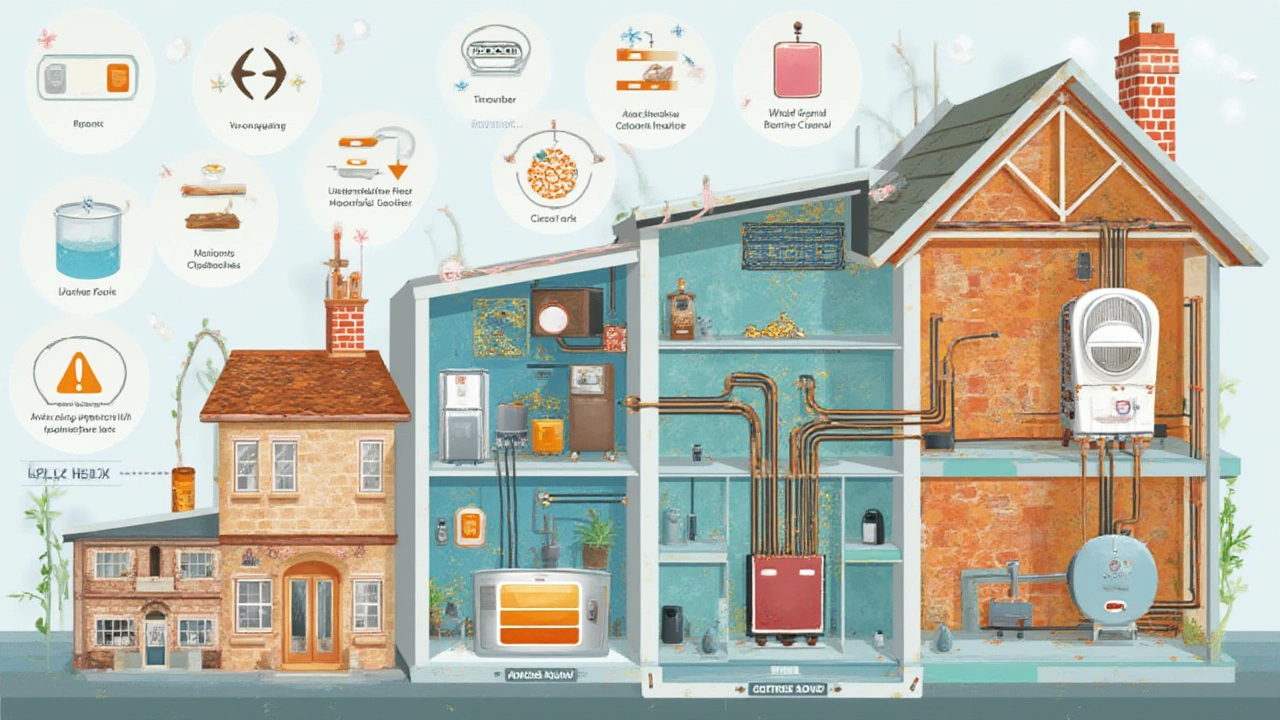
Warning Signs Your Boiler Could Be Nearing the End
Not all boilers just suddenly die; in fact, most go through a dramatic period of declining performance before finally packing it in. It starts with annoyances and ends with wallet-draining emergencies. Catching the red flags early can help you prep for a replacement or extend the remaining time you’ve got. Let’s talk about what to look for.
The first biggie—a sudden jump in your gas or electric bill. Even a relatively new boiler will lose a little efficiency year-on-year, but when you notice you’re paying way more for the same warmth or hot water, that’s a sign the internals could be corroded, gummed up by limescale, or just worn out. A 2022 consumer study in London found households with 15-year-old boilers faced heating bills up to £200 a year higher than homes with new systems.
Next, the infamous “unexplained noises” phase. If your boiler sounds like a kettle about to whistle, or starts banging and clanking, it’s often caused by air in the system, pump failures, or scale build-up. These aren’t just quirks—they’re usually signs of serious internal wear or blockage. Ignoring weird noises rarely pays off; it’s almost always a preview of an expensive repair or failure.
If your radiators or hot water are taking forever to heat up, or you’ve got stubborn cold spots that refuse to warm up, the problem could be sludge in your pipes or old, inefficient heat exchangers. This clogged-gunk scenario chokes the whole system, making your boiler struggle to keep up. And then there’s the constant need to top-up pressure—another classic warning that leaks or faulty valves are hiding somewhere in the system.
Losing faith in your pilot light? Modern boilers use electronic ignition, but if yours is older and you keep relighting it, it’s trying to tell you something. Frequent resets, random shut-downs, or strange error codes showing up on the display panel all point to the clock ticking down on your system’s useful life.
One more sign: yellow or flickering flames instead of blue. This isn’t just about efficiency—it’s a safety issue, hinting at poor combustion or possible carbon monoxide risks. If you ever notice a yellow flame, turn off the boiler and call a professional. Regular service will check for these dangers, but it’s always good to keep an eye out yourself.
Let’s sum up the most common end-of-life signs:
- Rising energy bills (without changing usage)
- Strange noises: whistling, clanking, banging, gurgling
- Poor or uneven heating
- Slow hot water or no hot water at all
- Repeated resets or frequent repairs
- Visible corrosion around pipes or tank
- Yellow/flickering pilot light
- Noticable carbon monoxide alarms or headaches, drowsiness near the boiler (massive red flag—get out and call for help)
If you’re facing these, resist the temptation to just patch up again. Modern boilers have moved on with much better efficiency—sometimes by as much as 30%—and the safety features will make your older one look ancient.

How to Make Your Boiler Last Longer and Save Money
You want to wring every possible year from your boiler—that’s normal, considering the cost of a new one. But there are smart ways to give your system the best shot at a long, healthy life without annoying breakdowns. First, never skip the annual service. It sounds basic, but a heating engineer will spot issues like blocked filters, leaky valves, and early signs of corrosion way before they become emergency calls in January. Data from the Energy Saving Trust shows boilers that get a yearly check-up last an average of four to five years longer.
If you’ve got hard water, fit a scale reducer or water softener. The little gadgets don’t cost much up front but can save you hundreds by keeping scale off the heat exchanger and sensors. You’ll see fewer breakdowns and keep efficiency sharp year-round. Ask your service tech to check and clean the magnetic filter—most modern boilers rely on these to catch magnetic rust and sludge before they clog up your pipes. A quick clean once or twice a year can be a game-changer for circulation and heat output.
Have you ever bled your radiators? Removing trapped air every few months lets hot water flow as it’s supposed to, making sure your boiler doesn’t overwork itself. If you’ve got old, stubborn radiators, power flushing (blasting water and chemicals through at high speed) clears out years of sludge, but you probably only need this every 5–7 years unless you start seeing cold patches or slow heat-up times.
Smart programmers and thermostats can play a big role, too. Instead of old-fashioned manual controls, upgrade to a programmable thermostat. A steady set temperature stops your boiler from endlessly heating up and cooling down—a huge factor in adding years to its life. Setting lower night-time temps or holiday schedules saves money and stress on your system.
Don’t ignore small leaks—even minor drips usually point to bigger pressure or corrosion problems coming soon. Deal with any sudden pressure drops right away, as running your boiler below its ideal range will make it wear out fast. Make sure your installer used good quality parts and did a proper power-flush at install—it’s often the difference between a 7-year headache and a boiler that cruises past its 15th birthday.
Let’s wrap up with a quick checklist to keep your boiler going strong:
- Book an annual professional service—don’t skip it
- Fit a scale reducer or softener if you have hard water
- Bleed radiators every few months to avoid trapped air
- Upgrade to a smart thermostat for less cycling
- Clean magnetic filters regularly
- Keep an eye on pressure and address leaks promptly
- Consider a power flush if your heating has cold spots
Boilers don’t last forever, but a little care pays off in fewer repairs and longer life. Watch for the warning signs, take care of those hidden enemies like hard water and sludge, and remember—a bored engineer with nothing much to report at your annual service? That’s the sign of a boiler that’s got years left, not months.

